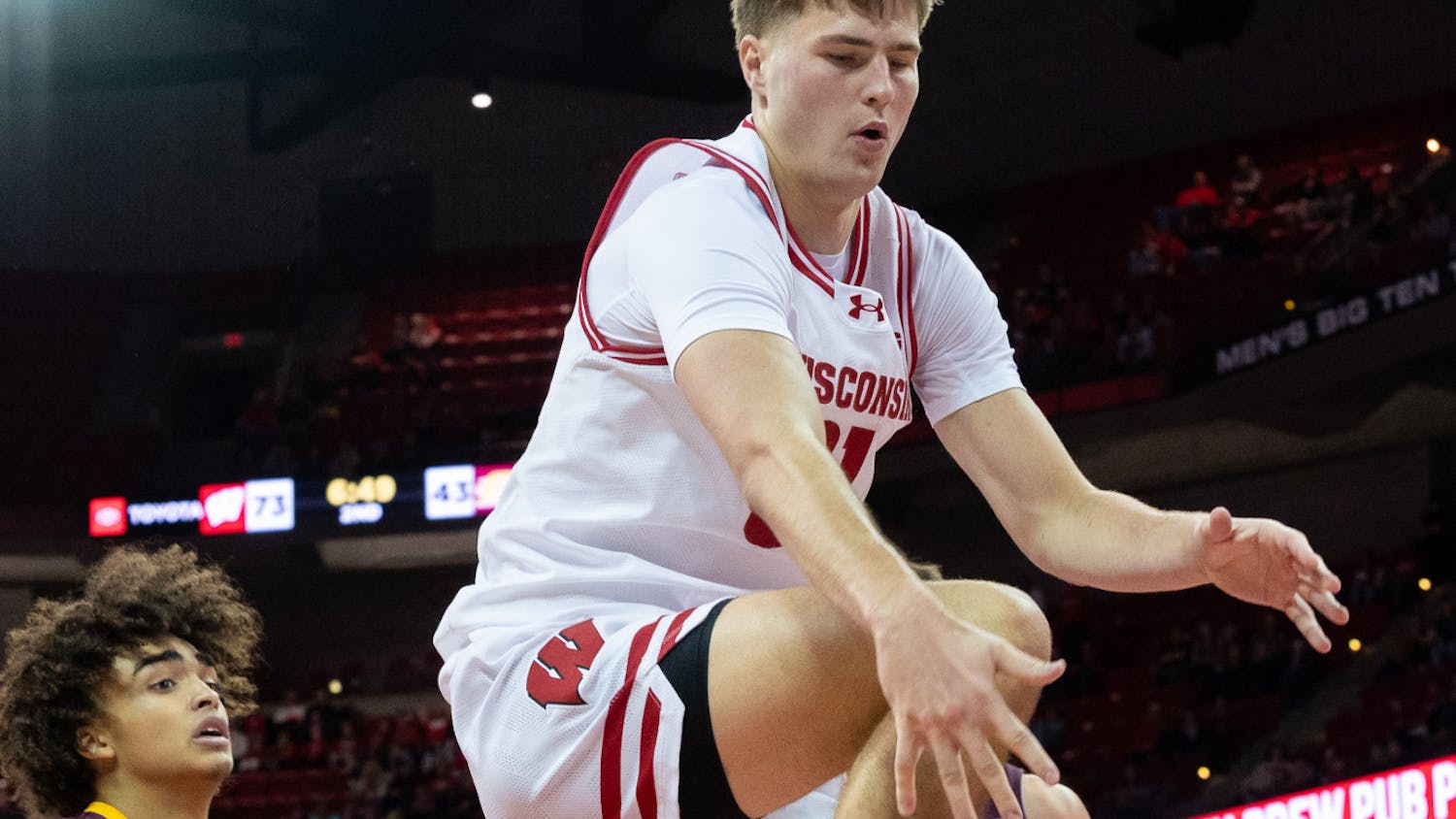In the high-stakes arena of NCAA Division I collegiate sports where physical ability is often the primary focus, there lies a silent battle many University of Wisconsin-Madison student-athletes face daily: their mental health.
Beyond the cheering crowds, these young people have the pressure to perform academically and competitively every day. A 2021 NCAA survey found 26% of male student-athletes and 39% of women student-athletes felt mentally exhausted from academics and their sport during their college career.
Mental health struggles can be hard to pinpoint, especially in the backdrop of student-athletes’ rigorous training schedules and academics student-athletes handle.
Claudia Reardon, a sports psychiatrist at UW-Madison, identified various stressors affecting student-athletes, such as time demands, feeling like a commodity, pressure to continue in a sport when not desired, needing a scholarship to stay at the university, injury/surgery and adjustment to everyday life after their athletic career.
Student-athletes consider themselves as working two full-time jobs over the year: school and their sport, said Sebastian Cheeks, a sophomore linebacker on the UW-Madison football team.
"You are always — and I mean always, 365 days of the year — doing something related to your sport," Cheeks said.
For senior tight end football player Riley Nowakowski, the pressures reach a critical point at midseason.
"Every single year, you start to feel like you do not have time to do both," Nowakowski said.
Nowakowski's experience highlights the dilemma many student-athletes face: sacrificing academic success for athletic performance, or vice versa.
This is a decision that takes a toll on mental health, Nowakowski said. "Freshman and sophomore year, my mental health was not very good because I would be pulled in all these directions."
However, Nowakowski said he found support in resources provided by the university's athletic department, particularly from trainers who helped him navigate through the end of his sophomore year.
According to the UW-Madison Athletics Mental Health Department, key practices for managing stress include prioritizing adequate rest, establishing a reliable support system such as family members or close friends, and implementing effective time management techniques. The department also provides specialized sports psychiatrists to support their athletes mental well being.
Among these initiatives was hiring Chad McGhee, who became first-ever meditation coach in major college sports when he joined UW Athletics in 2020.
"You need to practice strength and conditioning for the mind just like you would for a sport to improve," McGhee said, adding that mental training improves physical training results.
He compared the process of learning meditation to a zero-entry pool.
“A zero-entry pool is like a ramp you can just step into. It’s ankle deep, and that's going to be the initial teaching and that might [compare to] breath or visualization practice,” McGhee said. ”From there, the training can go deeper into the deep end of the pool… it's important for people to not confuse the shallow end of the pool and the whole pool. It can be harmful to jump right into the deep end”.
Maddie Poor, a sophomore and women’s soccer player, said meditation was a game-changer for her.
"It's cool because I've never done it before. I've just started doing it, and I can feel myself calming down before I get stressed from a game or practice,” Poor said.

In addition to meditation, Poor said UW-Madison provides mental health specialists and therapists for student-athletes via both in-person and via remote support.
In collegiate sports, UW-Madison is a leader in prioritizing the mental well-being of its student-athletes, Cheeks said. "The more you feel like you can contain yourself in a culture that's like a family atmosphere, the better.”
Poor said she appreciates the level of mental health resources provided at UW-Madison.
“UW-Madison athletics is very good at making sure we are supported throughout the whole year. We have a lot of resources for our mental health available at our hands if needed, which is a good feeling,” Poor said.






